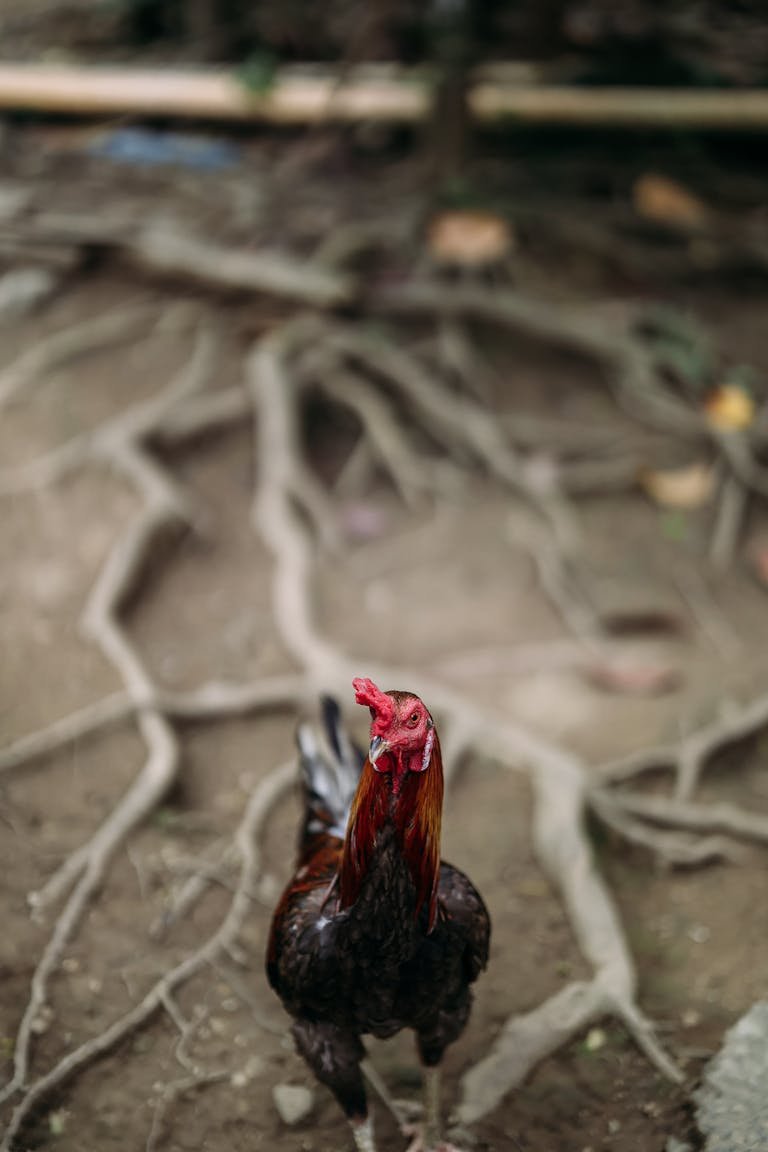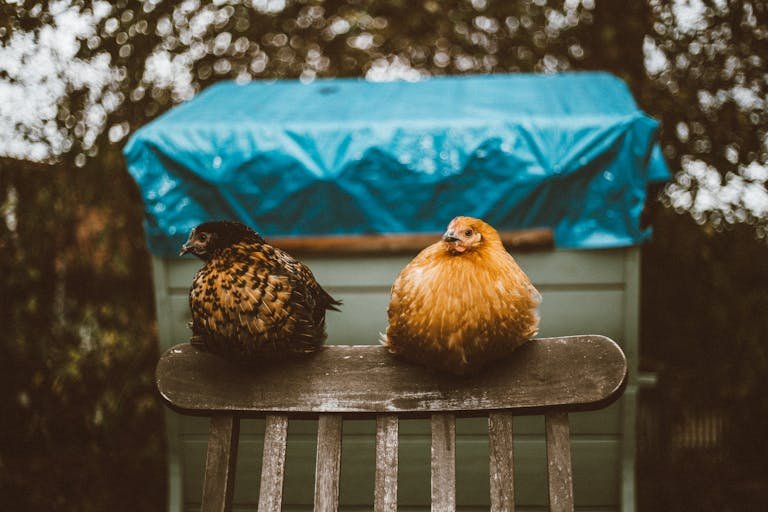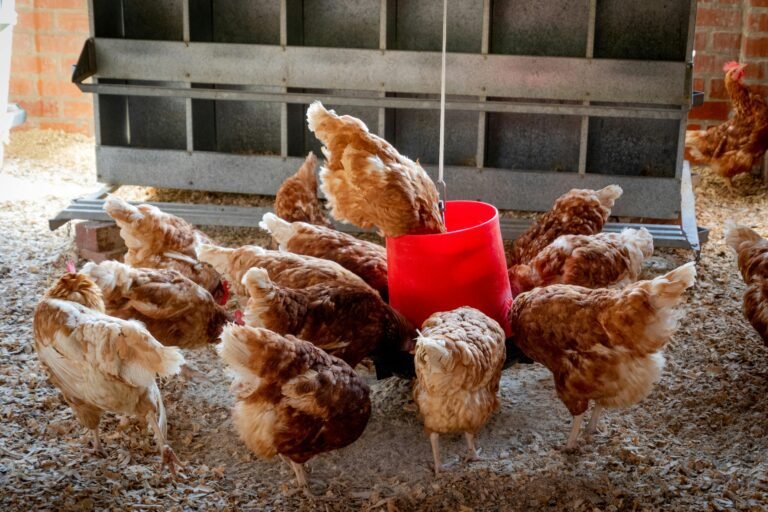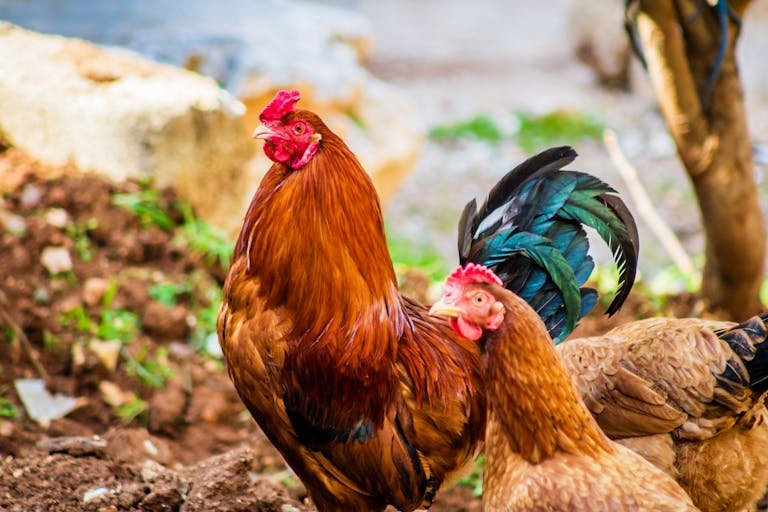Chicken Sleep Secrets? They Don’t Dream in Beds!
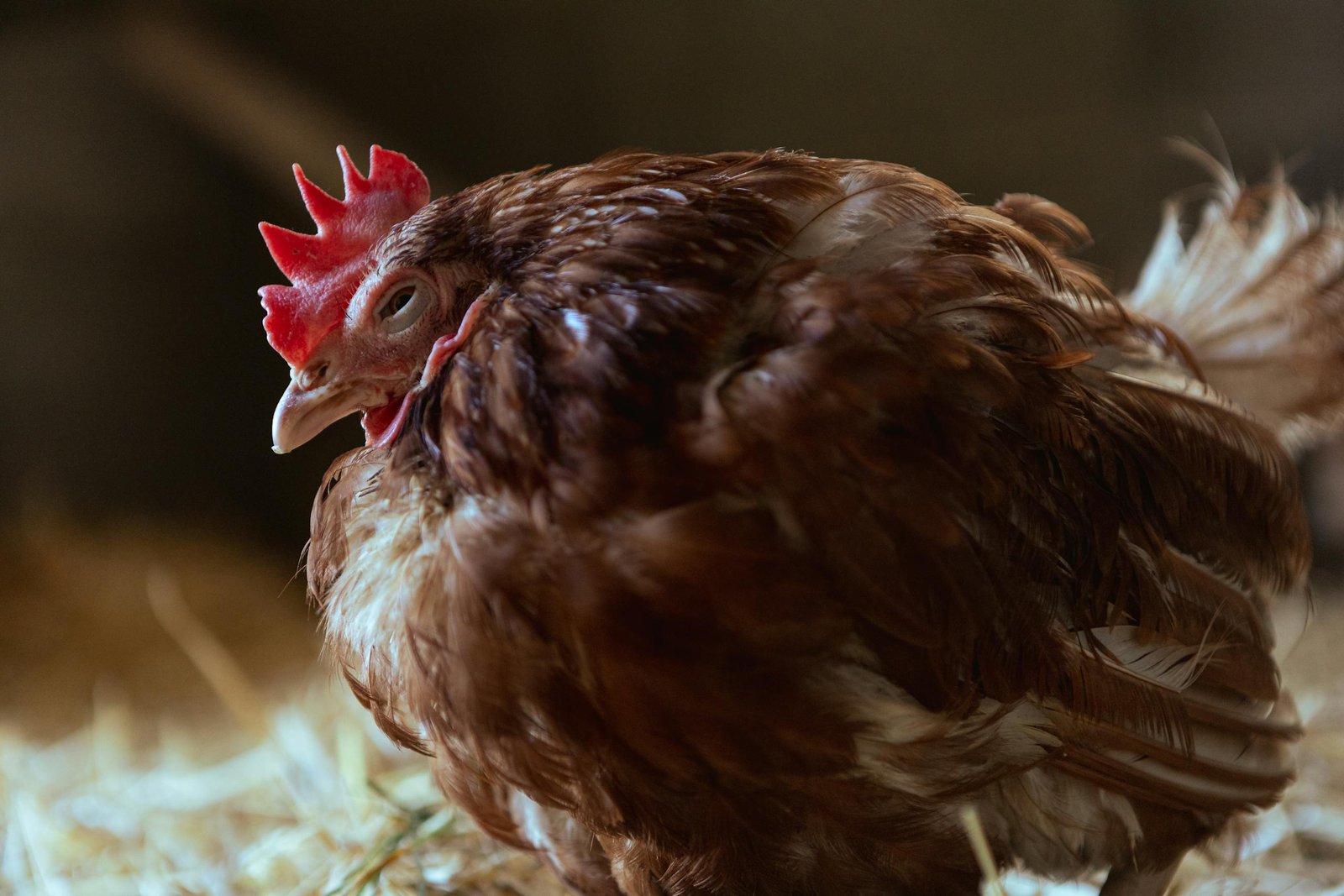
As a living organism, like all other animals or creatures, chickens also have certain requirements in terms of sleep. Any caretaker of chickens needs to know these requirements to promote the well-being of their birds. In this post, we will explore the different situations that chickens like to sleep in and How Chickens Sleep so the birds can get their much-needed rest to remain healthy and produce at optimum for the farmers.
Some Interesting Sleep Habits
Chickens have some interesting sleep habits! Here’s a breakdown of their typical slumber routine:
Roosting Preference
Chickens belong to the perch sleepers, who must sleep on some structure such as a roost. In the wild, it serves the purpose of protecting them from ground-dwelling lethal predators. The farmers supply the horizontal roosting bars made from wood or PVC pipes in coops.
Social Sleeping Behavior
Chickens are social animals, and during the roosting times, they prefer to cluster together for warmth and protection. They usually prefer roosting close to particular chickens for many consecutive nights, which gives them tenderness and security within the flock.
Full Shut-Eye Sleep
Chickens are no exception to proper or deep sleep, where an eye closes during the other half of the night. This tends to happen particularly when they are securely located among the rest of the flock at the core of the roost.
Unihemispheric Sleep
One of the most intriguing aspects of chicken sleep is their ability to sleep with one eye open! Each eye is connected to the opposite hemisphere of the brain. This enables one hemisphere of the brain to rest while the other hemisphere wakes up and waits for predators. Scientists have found that the chickens retire at night, and the birds take turns sleeping with one eye closed to allow the two sides of the brain to rest. Chickens in the center of the flock may even sleep with both eyes closed because they will feel safe amid other chickens.
REM and Non-REM Sleep
Like the human body, the chicken’s body has different sleep stages. They go through REM periods, which is the time they have dreams. They also have non-REM sleep, a higher stage of sleep needed for rest in people’s everyday lives.
Rest Throughout the Day
Like every other bird, chickens sleep at night but also have short periods of sleep during the day. These power naps assist them in being active during foraging, socialization, and other activities.
The Importance of Understanding Chicken Sleep
Understanding how chickens sleep is crucial for several reasons. Firstly, it means that poultry farmers can provide suitable sleeping conditions in coops to keep their birds healthy and comfortable. Furthermore, knowing about chicken sleep can benefit those with backyard chickens by helping them understand how best to support their poultry in having a proper and comfortable sleep.
Condition In Which Chickens like to sleep
Elevated Roosting
Chickens are instinctive fliers and naturally prefer to roost off the ground. In the wild, they look for heights similar to tree branches to secure and keep the perch safe. This instinct is nicely met by having strong perching bars within the chicken coop. Ensure the dominant fowls are placed where they will be comfortable since they like sleeping at elevated places for safety precautions.
Safety in Numbers
Chickens are gregarious animals and feel secure if they are near their pen-mates, even when they are asleep. Staying close to one another at night helps them retain heat and protects them from possible predators. Try to imagine a chicken cuddle puddle where every chicken is safe and secure, surrounded by fellow chickens.
Light Matters
Like other animals, chickens have a natural body clock that controls their sleep-wake cycle according to signals in their environment. Chickens know that when it becomes dark in the evening, they need to sleep just as much as humans do. Make sure the coop is sufficiently dim and quiet at night to help the birds stay asleep. Do not use artificial light while sleeping, as it changes this cycle and the quality of sleep, too.
Temperature Trouble
The domestic fowl is sensitive to temperatures and should ideally sleep in a cool to slightly warm environment. They end up being affected in their sleep and overall health since there are very high temperatures at that place. Ensure the coop is adequately ventilated and insulated to allow the right and comfortable temperature throughout the year’s seasons. In summer, ensure that the birds have enough space and fresh air to avoid being roasted, while in winter, you may need to add sources of warm air to keep them warm.
Peace and Quiet
Birds, like other animals, need to rest. Since chickens are chickens, they need a quiet and calm place to sleep. Loud noises, bright lights, or any other form of interference in the environment can easily awaken them. Ensure the chickens have a separate dark zone within the coop where they can rest and nap without being disturbed. Limit outside interference and ensure the coop is situated in an area with less traffic and no noisy activities.
Read Also: Are Bananas Good for Chickens?
Final Words
In conclusion, despite the seemingly simple nature of these chickens, their sleep patterns are complex and intricate. Like other animals, chickens also exhibit different sleeping habits, such as a peculiar way of resting. Understanding these intricacies of chicken sleep can help one understand these animals and give them the deserved attention.
